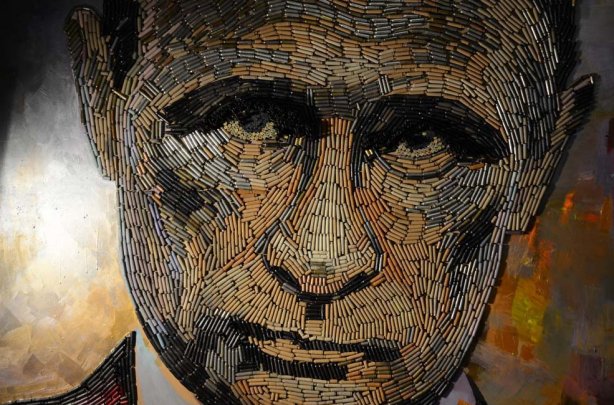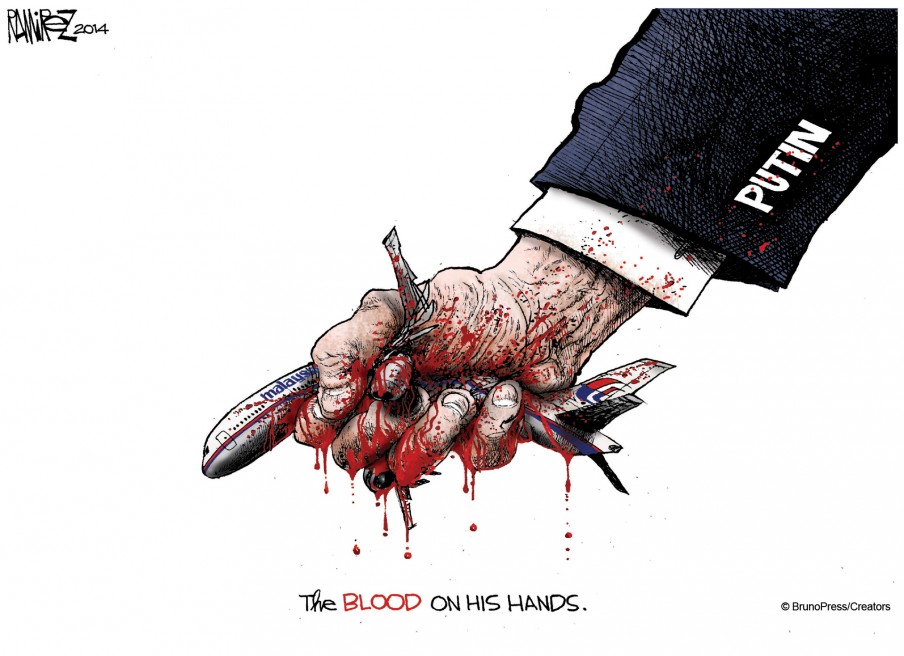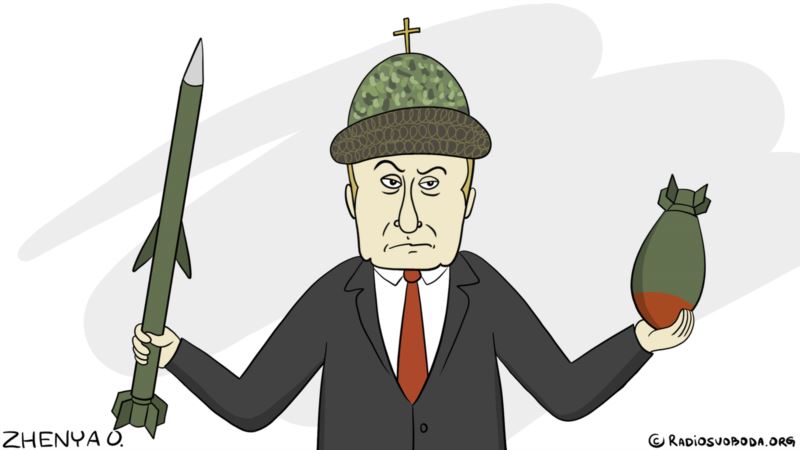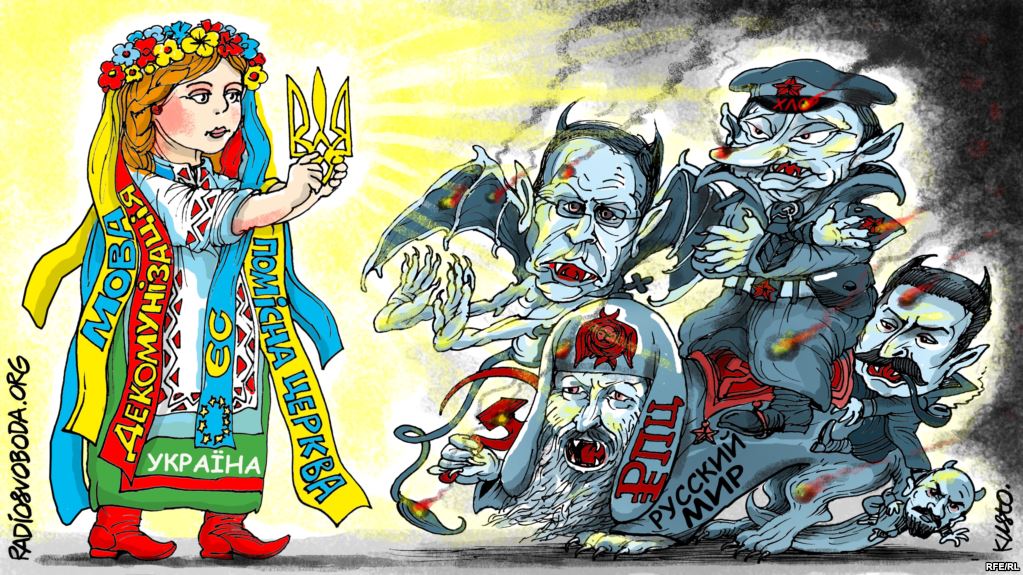Persistent calls to let the Russian president save face continue even in the ninth year of Russian aggression against Ukraine.
Recently the US president joined the camp of such sympathetic Western public figures by expressing his concern that the leader of the aggressor-state doesn’t have an off-ramp for leaving the war. Countless articles regularly appear in Western media stressing the importance of creating conditions for a “victorious retreat” of the Russian ruler.
However it is exactly the appeasement of the Kremlin and a policy of open dialogue that have been encouraging Putin’s ever-increasing belligerence, and the impudence with which he’s been conducting military incursions abroad has only grown in scale.
Let us examine which public figures are persisting in their calls to help save face for some who had never cared about it himself, as well as the effects of such an approach.
Operation to Save Putin’s Face: how it all began
The attempts to help the Russian president save face began a long time ago. For example, in July 2014 British journalist Angus Roxburgh, who is considered to be an expert in Kremlin’s inner workings, named his Guardian article just that – “Let Putin Save Face.”
The story appeared four days after the Russians shot down a Malaysian Airlines passenger jet. The author didn’t deny the fact that Putin was responsible for the tragedy, but his advice on how to react to Russia’s impudent actions was made in the Russians’ favorite style — “everything isn’t that clear.”
“The West needs to put pressure on Putin – but it needs to be the right kind of pressure. If there’s one thing I took away from three years of working closely with Kremlin officials, it was that Putin detests being lectured by outsiders, and tends to react badly to all criticism. There is not a single instance of his bowing to criticism by doing what the west demanded. There are plenty of instances of his doing the opposite.”
He also provides some advice:
“Putin could well be president for the next 10 years, and we cannot afford a decade of cold war. It’s time to swallow hard, and bring the region’s dominant powerbroker inside the tent, to help ensure the integrity of Ukraine – and peace in Europe.”
The author represented an extensive network of Western public figures with low and high profiles alike who wished to bring Russia to the negotiating table and resolve everything peacefully. Clearly, it wasn’t just Angus Roxburgh whose influence was chiefly responsible for favoring the policy of dialogue in the West, he was just one of its proponents. Western governments have long been trying to find ways to cooperate with Russia and engage in discourse.
Massive civil rights violations inside Russia, its aggression towards its neighbors, and even hybrid warfare operations inside Western countries had no effect on this policy. Appeasement and dialogue became the core principles of NATO’s strategy for dealing with Russia after its invasion of Ukraine in 2014.
It’s worth recalling that the United States first threatened to impose sanctions already after Russia’s invasion of Georgia in 2008. However, after just a few months Barack Obama’s administration began its “reset” policy with Russia.
The start of the occupation of Crimea was followed by Ukraine’s key partners imploring the victim “not to give into provocations.”
Western politicians were sure that if the Georgian case is not repeated and there is no armed response to Russian aggression, then everything could be settled diplomatically. The Ukrainian Parliament was deemed worthy of praise “for refusing to give in to Russian provocations,” as noted by the British Secretary of State William Hague in March 2014.
No matter how much the West tried to resolve all disagreements with Russia in a diplomatic way, things had a way of getting worse.
Moscow met every Western concession with a new act of aggression.
The occupation of Crimea, the invasion of Donbas, the deliberate sabotage of the peace talks including shelling of Ukrainian positions, issuance of Russian passports in the occupied territories, blocking citizens living in the occupied territories from reaching Ukraine – all of this went unnoticed in the West.
To be fair, the European Union and the United States did enact some sanctions, but they were limited and delayed, which only led to undesirable effects. Russia had never been afraid of sanctions since it thought that the EU and US were too eager to cooperate with it, and so the sanctions would be only temporary.
So formed the vicious circle of ineffective sanctions:
- the West was forced to react and enacted sanctions if Russia went too far;
- Russia continued aggressive provocations, believing that yet again the EU and US surely won’t be able to come up with an effective response.
During eight years of “deterrence by dialogue,” Russia effectively developed an immunity against sanctions: the Kremlin stopped taking sanctions seriously. Russia didn’t believe that the West could actually cancel the Nord Stream 2 gas pipeline project, ban it from the SWIFT payment network, or enact sanctions against Putin’s relatives.
The West wanted to somehow come to an agreement through peace talks, so as not to close any off-ramps and allow Putin to “save face.” However, Russia’s full-scale invasion of Ukraine became a game-changer: the West proved that it can act decisively, and that the Kremlin made a strategic miscalculation by relying on Western weakness and disunity.
While the West was investing more and more effort towards this approach, Putin kept committing more and more “mistakes,” which only made him “lose face” even further.
By occupying parts of Ukraine in 2014, he lost face with the Ukrainians. By launching a full-scale invasion in 2022, he lost it in with the whole world.
Rescuing the faceless – this is what the West’s futile attempts at establishing a dialogue with Putin look like.
Timothy Snyder: If Ukrainians hadn’t fought back, the world would’ve been a much darker place
A fight for peace
As of late few Western leaders have been calling for Putin to be allowed to save face. However, the lack of public proclamations doesn’t mean that all of the old attempts to help Putin come out of the situation as a winner have stopped.
The main goal of these politicians is clear. They’re justifying the need for dialogue with the Russian president by using the sole argument of avoiding an even worse alternative scenario, such as a food shortage, a protracted war, usage of weapons of mass destruction and so on.
On 13 May, the Russian president got a call from Olaf Scholz. This was their first phonecall in six weeks. Their previous one was on 30 March. After the news of the Russian war crimes in Bucha became public, the phone diplomacy was put on hold.
French President Emanuel Macron resumed the dialogue even earlier on 3 May, after just one month.
A few days before that Joe Biden proclaimed he was worried the Russian president had “no way out.” On 14 May, the first phonecall between the defense ministers of Russia and the US took place.
Volodymyr Zelenskyy made headlines by publicizing the fact that the French president offered Ukraine to make significant concessions in order to entice Russia to stop the war and “let Putin save face.”
While officials in Paris denied this, the Ukrainian leadership is clearly concerned about the appeasement efforts to benefit the Kremlin.
Ukraine had always prioritized peace talks and even demonstrated readiness to make concessions. Some of those were of critical nature, such as with the Crimea and the Minsk Accords.
Volodymyr Zelenskyy began his presidency by making concessions as well, whether in regards to the so-called “Steinmeier formula,” handing Russia one of the key witnesses of the destruction of the Malaysian Airlines passenger jet, a one-sided pullback of Ukrainian troops in June 2019, or avoiding the use of words such as “aggressor” and “occupation.”
On 29 March this year, Ukraine offered its own vision of peace with Russia, which consisted of giving up on its efforts to join NATO.
Russia has had a multitude of opportunities to “save face.” However, Moscow has never considered Ukraine’s peaceful concessions to be enough.
The long list of previous futile attempts at appeasement should long ago have convinced Western politicians that with every chance to save face that Putin received, his plans became only more aggressive. Western experts, diplomats and politicians have had ample time to realize how Russia reacts to diplomacy and dialogue. It’s perceived as a weakness, which only invites further hostility.
Clearly, however, peace talks play an important role and must continue. But they can’t be guided by the delusional belief “what if this time will be different and Putin gets satisfied.”
Those who have talked to Putin personally admit that over the past few years it had become fairly difficult to hold a conversation with Putin. He always ties everything to historical analogies, and engages in long-term manipulative lectures regarding the supposed “Western impunity”.
Putin’s recent talks with the United Nations secretary-general help understand what it’s like to negotiate with him behind closed doors. There is no indication that Russia has decided to change its course.
Ukraine is interested in peace first and foremost, however. Yet the critical mistake of Western partners first holding private talks with Putin, and then simply passing on his demands to Ukraine must be avoided.
Most importantly, it is a mistake to make it seem like peace depends on Ukraine.
“It is important to note that it is up to Volodymyr Zelensky to decide when to stop the fight,” writes French diplomat Michel Duclos, former ambassador to Syria, in his recent piece for Institut Montaigne.
Does Putin have a way out?
In war, everyone’s a loser. However it is clear that the war has to be stopped by the side that started it.
Putin had three strategic goals when he launched the invasion: strengthen his grip on power, establish control over Ukraine, and restore dialogue with the West on new terms.
He failed to achieve the second and third objectives quickly. Further pursuing these will require a lot of time and resources. However, that will eventually hurt his main objective of maintaining expanding his grip on power.
As a fan of historical discourse, Putin should well remember how the protracted wars in Vietnam ended for the US in 1973, for the Soviet Union in Afghanistan in 1989, or for the US in Afghanistan in 2021. The lives lost, the billions of dollars wasted, all without ever achieving their original goals.
No political elites making the decision to end protracted wars really concerned themselves with saving face by making out as winners. The level of societal displeasure and criticism was so high, that ending the war was the only feasible way to “save face.”
One must admit, however, that at this stage Putin still has enough ways to save face, if he’s really interested in that.
His iron grip on politics and media inside Russia allows him to make anything seem like a victory. It would be unreasonable to assume that Putin can be afraid of internal criticism if he stops the war. If his repressions are so effective at stifling Russia’s anti-war opposition, then nothing prevents him from dealing with the war proponents as well.
Clearly, Putin kept his goals in regards to the “special operation” against Ukraine ambiguous on purpose. The reality is that he continues to engage in hybrid warfare: Russia doesn’t call the war a war, doesn’t announce a troop mobilization, timidly talks about the “situation in Ukraine” without naming the true reasons for such a “situation.”
This creates flexibility for Putin in regards to the eventual meaning of “victory.”
Hence the West is wrong in thinking that Putin’s options are severely limited.
Pay attention to the comments made by ordinary Russians, who mostly support Russia’s war against Ukraine. First off, they are repeating the narratives they’ve heard from state TV channels. This proves that whatever the TV pundits call victory will be repeated by the victims of propaganda.
Secondly, Russian citizens often use their go-to excuse when faced with a difficult question – “I fully trust the president. Whatever he decides is the right thing to do.” This phase was often heard when Russia got bogged down in the Syrian war. It’s coming up just as often nowadays.
Sure, the proposed “victory” through propaganda would be fake. It is, however, a logical extension of the same political strategy that’s been utilized by the Russian political elite for the last twenty years.
While Putin continues to escalate and add more pressure on Ukraine, it could mean only one thing – Western phone calls are harmful not only for the people making them, but for achieving a lasting peace as well.
By so eagerly trying to save Putin’s face, Western politicians risk losing theirs.
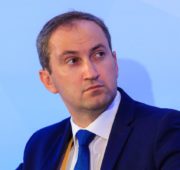 Serhiy Solodkyi is the first deputy director of the New Europe Center
Serhiy Solodkyi is the first deputy director of the New Europe Center
Related:
- Bucha: a turning point–not only in Putin’s war in Ukraine, but in relations between Moscow and the world
- Western policies of appeasement produced a monster… again
- “If ‘never a war again,’ what do you tell the people who are being attacked?” Ukraine parliament appeals to Bundestag
- Only military defeat in Ukraine can stop Putin from pursuing his larger goals, Skobov says
- Western leaders have made Putin into a Superman to avoid facing up to their own mistakes, Inozemtsev says
- Timothy Snyder: If Ukrainians hadn’t fought back, the world would’ve been a much darker place




